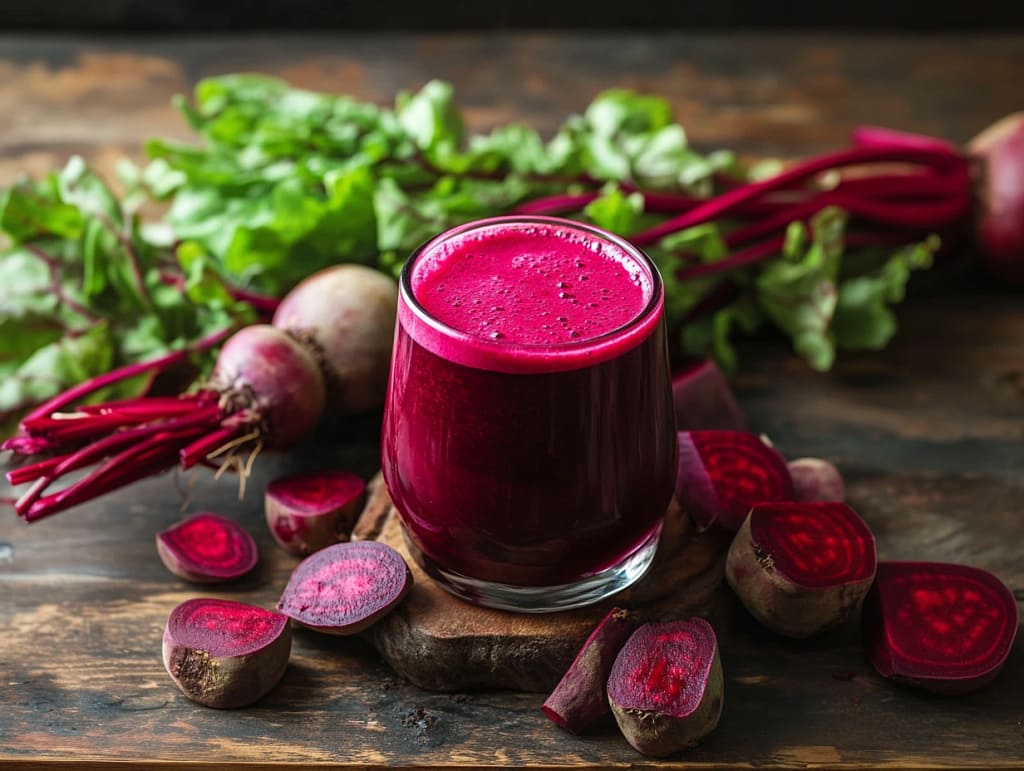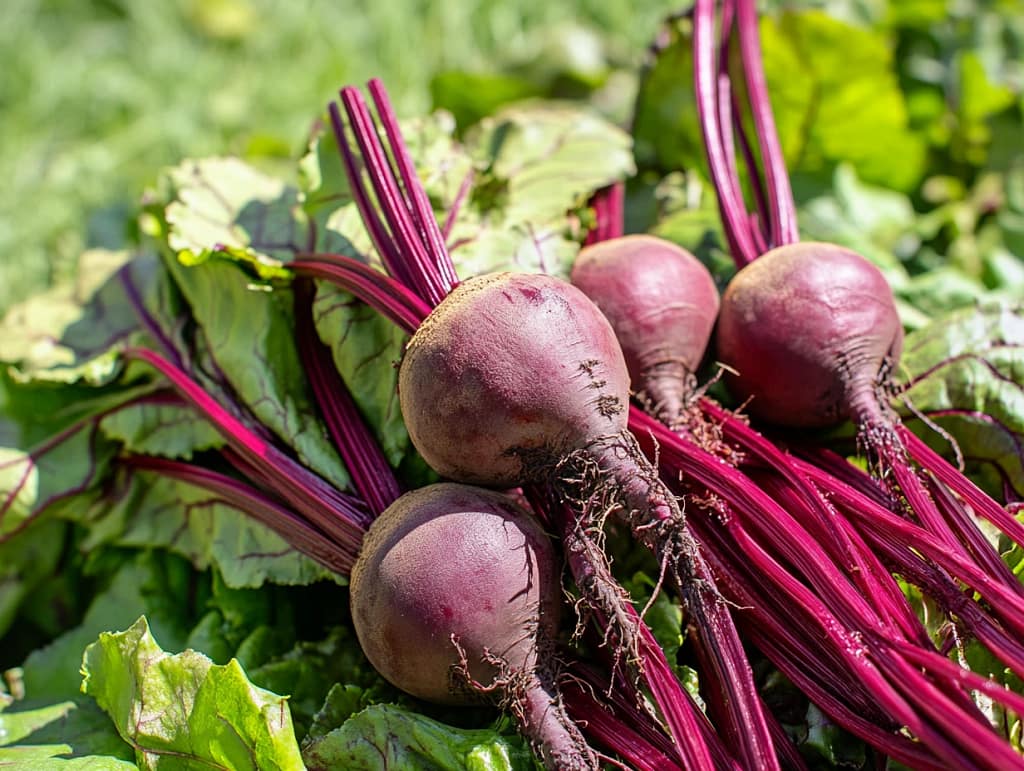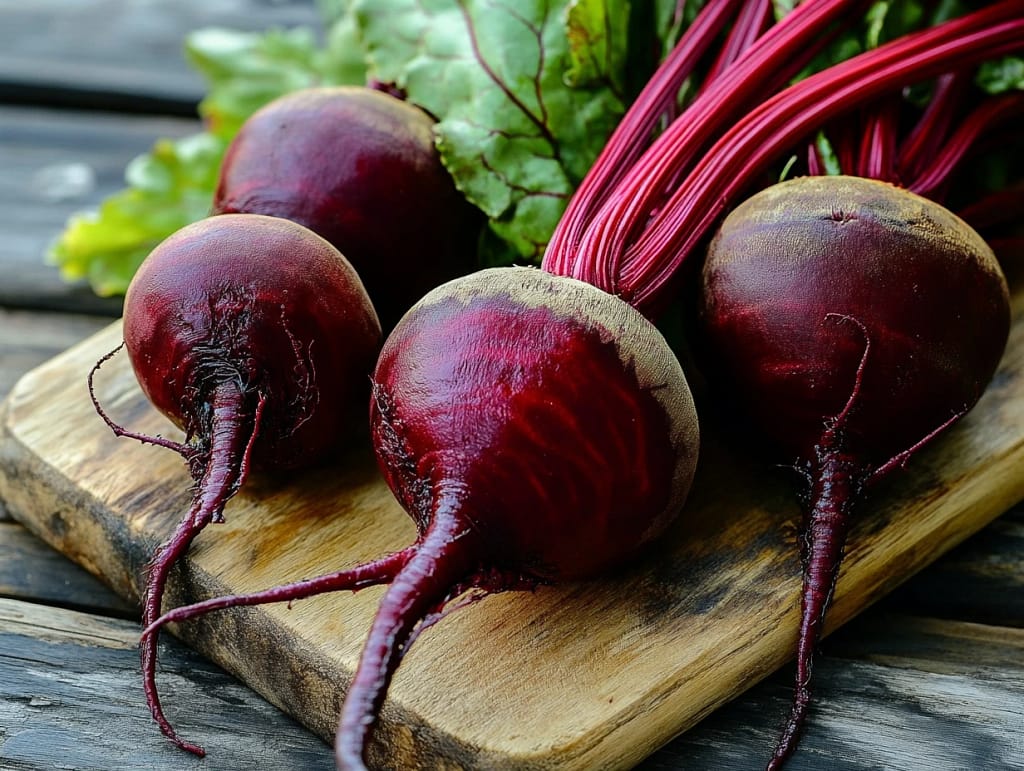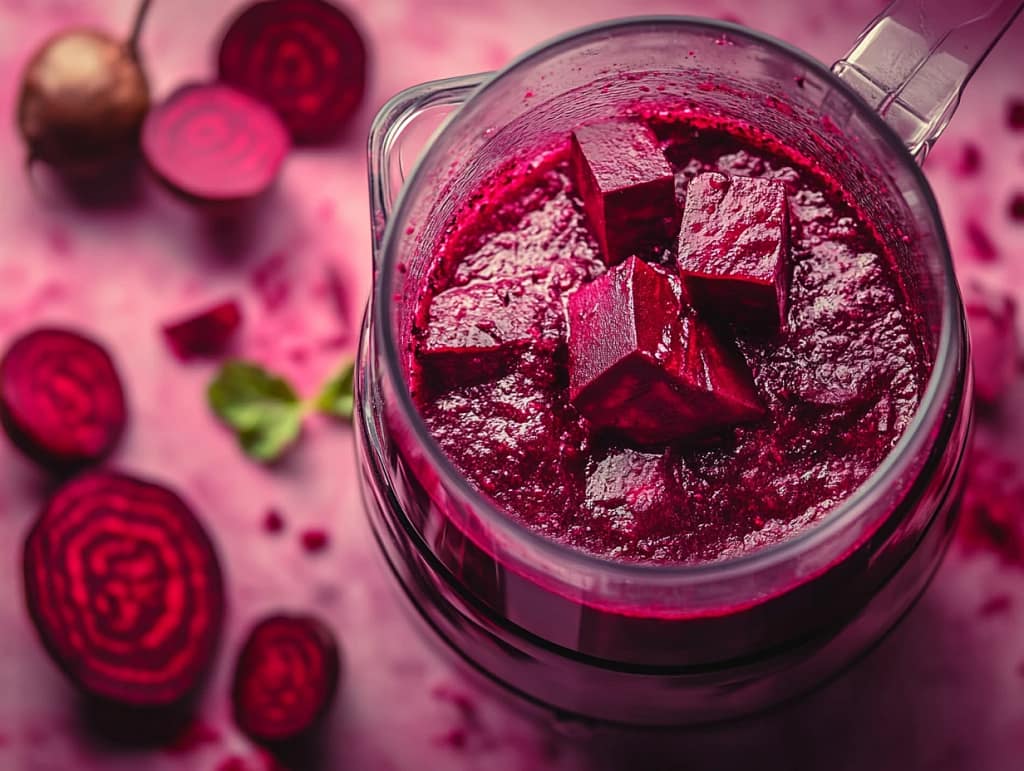Benefits: A Nutritional Powerhouse for Health and Wellness

Introduction
In recent years, beet.root juice has surged in popularity, and for good reason. Often referred to as a natural superfood, beetroot juice is praised for its vibrant color, earthy flavor, and most importantly, its remarkable health benefits. Whether you’re looking to support heart health, improve athletic performance, or simply enhance your daily nutrient intake, beetroot juice is a powerful addition to your diet.
Derived from the root of the beet plant (Beta vulgaris), this ruby-red elixir is loaded with essential vitamins, minerals, and antioxidants that support various bodily functions. From ancient Roman soldiers who consumed it for stamina to modern-day athletes who use it as a performance booster, beetroot juice has stood the test of time as a natural remedy and wellness enhancer.
Let’s dive deeper into the impressive nutritional profile of beetroot juice and explore how it can positively impact your health.
Table of Contents
Nutritional Profile: What’s Inside Beetroot Juice?
Beetroot juice isn’t just a trendy beverage—it’s a nutrient-dense drink that delivers a significant amount of vitamins and minerals in every sip. A single cup (250 ml) of beetroot juice typically contains:
- Vitamin A: Supports vision, immune function, and skin health.
- Vitamin C: A potent antioxidant that strengthens the immune system and promotes collagen production.
- Vitamin B6: Helps with brain development and function.
- Folate (Vitamin B9): Crucial for DNA synthesis and cell repair—especially important during pregnancy.
- Iron: Essential for red blood cell production and oxygen transport.
- Magnesium: Supports muscle and nerve function, as well as energy production.
- Potassium: Helps maintain fluid balance, nerve signals, and muscle contractions.
- Dietary Nitrates: Convert into nitric oxide, a compound that improves blood flow and heart function.
- Antioxidants (such as betalains): Provide anti-inflammatory and detoxifying effects.
Together, these nutrients form a synergistic blend that fuels the body, protects against disease, and supports optimal health.

Top Health Benefits of Beetroot Juice
1. Improves Blood Pressure and Heart Health
One of the most well-researched benefits of beet root juice is its ability to lower blood pressure. This is primarily due to its high nitrate content, which the body converts into nitric oxide—a molecule that relaxes and widens blood vessels, thereby improving blood flow and reducing blood pressure.
Several studies have shown that drinking beetroot juice daily can significantly lower systolic and diastolic blood pressure, making it a natural and effective option for those managing hypertension. Better blood flow also contributes to overall cardiovascular health, reducing the risk of heart disease and stroke.
2. Boosts Athletic Performance and Stamina
Athletes and fitness enthusiasts often turn to beetroot juice for a natural edge. The nitrates in beetroot juice enhance the efficiency of mitochondria—the powerhouses of cells—helping muscles use oxygen more effectively during physical activity.
As a result, drinking beet-root juice before workouts can improve endurance, increase time to exhaustion, and reduce the oxygen cost of exercise. Whether you’re running a marathon or just trying to get through a spin class, beetroot juice might be the boost you need.
3. Supports Liver Detoxification
Your liver is responsible for detoxifying your body, and beet-root juice can help it function more efficiently. The antioxidants in beetroot juice, particularly betalains, help activate liver enzymes and promote the elimination of toxins from the body.
Beetroot also contains betaine, a compound that helps protect the liver from damage and supports the metabolism of fats. Regular consumption of beetroot juice may improve liver function, especially in individuals exposed to toxins or those with fatty liver disease.
4. Rich in Antioxidants and Anti-inflammatory Compounds
Free radicals—unstable molecules produced by environmental toxins, stress, and poor diet—can damage cells and contribute to chronic diseases. Beetroot juice is rich in antioxidants like betalains, polyphenols, and vitamin C, which neutralize these harmful molecules and protect cells from oxidative stress.
Moreover, beetroot’s anti-inflammatory properties may help alleviate symptoms of inflammation-related conditions such as arthritis, cardiovascular disease, and even certain types of cancer.
5. Enhances Brain Health and Cognitive Function
Improved blood flow isn’t just good for your heart—it benefits your brain too. Studies suggest that the nitrates in beetroot juice may enhance cerebral blood flow, especially in areas of the brain associated with executive function.
For older adults, this could translate into better memory, focus, and reduced risk of cognitive decline. Some research even links beetroot juice with improved mental performance and quicker reaction times.
6. May Aid in Digestion and Gut Health
Beet_root juice is a good source of dietary fiber and natural compounds that support gut health. While the juice has less fiber than the whole vegetable, it still contains enzymes that help break down food more effectively and stimulate bile production—key to proper digestion.
Some users report relief from constipation or sluggish digestion after adding beet-root juice to their diet.

How to Consume Beetroot Juice for Maximum Benefits
If you’re ready to incorporate beet-root juice into your routine, here are a few practical tips:
- Fresh is Best: For optimal nutrient retention, drink freshly extracted beetroot juice. Avoid juices with added sugars or preservatives.
- Start Small: Begin with half a cup (125 ml) per day if you’re new to beetroot juice, gradually increasing to 1 cup (250 ml) as your body adjusts.
- Mix It Up: The earthy flavor of beetroot juice might be intense for some. Blend it with other juices like carrot, apple, orange, or lemon to enhance taste and add more nutrients.
- Timing Matters: Drinking beetroot juice about 2–3 hours before a workout may help maximize its performance-enhancing effects.
- Consistency is Key: Like many natural remedies, the benefits of beet_root juice build up over time with regular use.

Possible Side Effects and Precautions
Beetroot juice is generally safe for most people, but there are a few things to watch out for:
1. Beeturia
A harmless condition where urine or stool appears pink or red after consuming beets. It may be surprising but is not dangerous.
2. Kidney Stones
Beets are high in oxalates, which can contribute to kidney stone formation in susceptible individuals. If you have a history of kidney stones, consult your healthcare provider before consuming beetroot juice regularly.
3. Low Blood Pressure
Since beetroot juice lowers blood pressure, people with hypotension (low blood pressure) should monitor their intake or consult a doctor.
4. Digestive Issues
Some people may experience bloating, gas, or mild stomach discomfort. Starting with a small dose can help minimize these effects.
FAQs About Beetroot Juice
Q1: How much beetroot juice should I drink daily?
A1: The recommended amount is about 1 cup (250 ml) per day for most adults. This dosage is generally enough to deliver the health benefits without causing side effects.
Q2: Can beetroot juice help with anemia?
A2: Yes, beetroot juice contains iron and folate, which are essential for red blood cell production and may help prevent or reduce symptoms of anemia. However, it should not replace medical treatment for severe anemia.
Q3: Is beetroot juice safe for everyone?
A3: While generally safe, individuals with certain conditions—such as kidney stones or low blood pressure—should consult a healthcare professional before consuming beetroot juice regularly.
Q4: Can I drink beetroot juice every day?
A4: Yes, as long as it’s consumed in moderation. Daily consumption of 250 ml is safe for most people and can lead to sustained benefits.
Q5: When is the best time to drink beetroot juice?
A5: Many prefer drinking it in the morning or about 2–3 hours before physical activity to maximize its energy-boosting effects.
Conclusion
Beetroot juice is more than just a colorful addition to your diet—it’s a natural, nutrient-packed beverage that offers a host of science-backed health benefits. From improving cardiovascular health and enhancing athletic performance to supporting liver detoxification and boosting cognitive function, beetroot juice is a simple yet powerful way to elevate your wellness.
As with any health food, the key is consistency and moderation. When incorporated into a balanced lifestyle, beetroot juice can become a valuable ally in your journey to better health. So, whether you enjoy it straight or mixed with other fruits and veggies, raise a glass of beetroot juice and toast to a healthier you!
for more juice recipes chek : https://www.bakeorsip.com/drink-recipes/
reference:
Healthline – 9 Impressive Health Benefits of Beets
https://www.healthline.com/nutrition/benefits-of-beets
(Covers nutrition, blood pressure, athletic performance, and liver health)
Medical News Today – What are the benefits of bee juice?
https://www.medicalnewstoday.com/articles/324863
(Provides in-depth health benefits and safety information)
Cleveland Clinic – Beet Juice: Is It Good for You?
https://health.clevelandclinic.org/why-beetroot-juice-is-good-for-you
(Offers professional medical insights and dosage recommendations)
NIH Study – Dietary Nitrate and Blood Pressure
https://www.ncbi.nlm.nih.gov/pmc/articles/PMC5295087/
(Scientific research supporting nitrate’s effect on blood pressure)
Harvard T.H. Chan School of Public Health – Vegetables and Cardiovascular Health
https://www.hsph.harvard.edu/nutritionsource/vegetables/
(Discusses general vegetable benefits including beets for heart health)